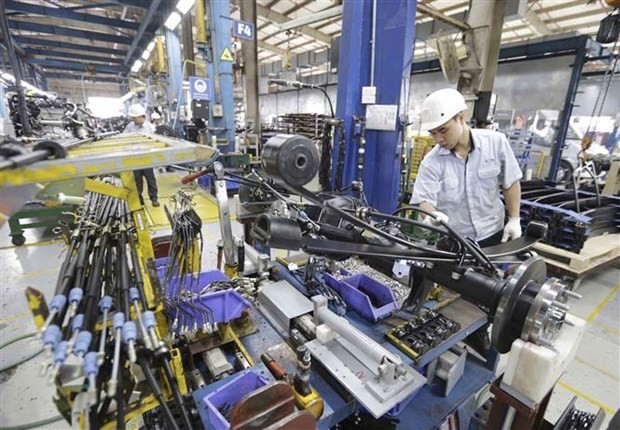
Vietnam must not settle for “world factory” status: Speakers at conference
Latest
 |
| Vietnam must not settle for “world factory” status: Speakers at conference. (Photo: VNA) |
The National Science Conference on Policies on Industrialisation and Modernisation of the Nation by 2030, with a Vision to 2045 was co-held by the Party Central Committee’s Economic Commission, Ho Chi Minh City Party Committee and the Vietnam National University HCM City (VNU-HCM).
In his opening remarks, VNU-HCM Director Assoc. Prof. Dr. Vu Hai Quan said that Vietnam has made major achievements during the Party-led industrialisation and modernisation era. The industry sector has contributed an increasing share to the economy, he said, adding that there has been a more substantial approach to promoting industrial restructuring in association with growth model innovation in Vietnam.
Industry has been the fastest growing sector in Vietnam, and contributed 28.5% to the economy in 2019 from 26.6% in 2011, he said.
Nguyen Xuan Thang, President of Ho Chi Minh National Academy of Politics, highlighted that industrialization and modernization have allowed Vietnam to maintain relatively high GDP growth, transforming it from an underdeveloped to a developing country.
However, Vietnam’s industrialization was mainly reliant on harnessing natural resources, capital intensity, and under-skilled workers, Thang said, noting that industrial production largely depends on assembly and use of imported machinery and input materials.
As a result, these factors have impacted on the environment, and national industrial capacity has remained weak. If the situation continues, Vietnam will eventually fall into the trap of being an assembly manufacturer and involved in only low value chains.
Speakers agreed that the national industrialization and modernization strategy from 2021 – 2030, with a vision to 2045, must stay relevant to the changing situation both domestically and internationally.
Speaking at the conference, Chairman of the Central Economic Commission Tran Tuan Anh underscored that science, technology and innovation act as the main engines driving national industrialization and modernization. Coupled with skilled human resources, they are breakthrough factors for the acceleration of the process, he noted.
It is critical to improve the regulatory framework and develop exclusive policies and mechanisms to boost technology use and transfer and innovation, he emphasised.
Vietnam must reduce independence on foreign resources while enhancing internal strengths, mastering core and digital technologies, and strengthening its resilience, he added.

















